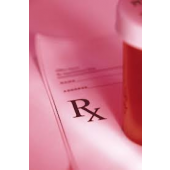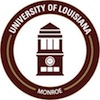Top 75 Pharmacy Schools in the U.S.

 56. Auburn University Harrison School of Pharmacy, Auburn, Alabama
56. Auburn University Harrison School of Pharmacy, Auburn, Alabama
Established as East Alabama Male College in 1856, Auburn University was the first land-grant college in the South. Today, the University is one of the few schools to be designated a land, sea, and space grant university. The 1,875-acre campus is home to 25,134 students enrolled in more than 140 degree programs across 13 colleges and schools.
The Auburn University Harrison School of Pharmacy offers several programs for aspiring pharmacists. The School offers the Pharm.D., M.S. and Ph.D. degrees in Pharmacy Care Systems and Pharmacal Sciences, and a Graduate Certificate in Medical Chemistry.
Tuition for the Harrison School of Pharmacy is $5,283 per semester regardless of residency status.
 57. East Tennessee State University Bill Gatton College of Pharmacy, Johnson City, Tennessee
57. East Tennessee State University Bill Gatton College of Pharmacy, Johnson City, Tennessee
Founded in 1911 as East Tennessee State Normal School, East Tennessee State University (ETSU) is home to more than 15,000 students enrolled in 11 schools and colleges. The school, which sits in a 366-acre main campus, was named a “Best Southeastern College” by The Princeton Review (2012). ETSU was among the best of the best on the list of 135 institutions.
East Tennessee State University Bill Gatton College of Pharmacy admitted its first class in January 2007. The College is “one of only 19 institutions in the U.S. and the only one in Tennessee with colleges of pharmacy, medicine, nursing, and public health on the same campus.” Offerings include the Pharm.D., Ph.D. in Pharmaceutical Sciences, and an introductory Pharmacy Practice Experience.
Tuition for the Bill Gatton College of Pharmacy at ETSU is $31,756 per year or $15,878 per semester (9 months), regardless of residency status.
 58. Ferris State University College of Pharmacy, Big Rapids, Michigan
58. Ferris State University College of Pharmacy, Big Rapids, Michigan
Ferris State University was founded in 1884 as the Big Rapids Industrial School. It is home to more than 14,000 students enrolled in more than 180 programs across eight colleges. The school, which sits on an 880-acre campus, has 19 additional sites across the State of Michigan and at the school's Kendall College of Art and Design in Grand Rapid.
The Ferris State University College of Pharmacy has been accredited by the Michigan Board of Pharmacy since 1893. The College is the “principle source of pharmacy practitioners in the State of Michigan.” The College offers the Pharm.D. degree and tuition for the program is $591 per credit hour for residents and $887 per credit hour for non-residents.
 59. University of Toledo, College of Pharmacy & Pharmaceutical Sciences, Toledo, Ohio
59. University of Toledo, College of Pharmacy & Pharmaceutical Sciences, Toledo, Ohio
The University of Toledo was established in 1872. It is home to 23,000 students enrolled in more than 300 undergraduate, graduate, and professional programs. The 400-acre campus houses 17 colleges, including the College of Pharmacy and Pharmaceutical Sciences.
Founded in 1904, the College of Pharmacy & Pharmaceutical Sciences was the first college established at The University of Toledo. Ranked among the nation's Top Pharmacy Schools by U.S. News and World Report, the College offers the Pharm.D., a M.S. and Ph.D. in Medicinal Chemistry, a Ph.D. in Experimental Therapeutics, a M.S. in Pharmaceutical Sciences with programs in Pharmacology/Toxicology, Industrial Pharmacy, and Health Outcomes and Socioeconomic Sciences (formerly Pharmacy Health Care Administration).
The College also offers a B.S. in Pharmaceutical Sciences with majors in Cosmetic Science, Medicinal and Biological Chemistry, Pharmaceutics, Pharmacology/Toxicology, and Pharmacy Administration, a B.S./M.S. in Medicinal Chemistry, and a Pharmacology/Toxicology Certificate.
Resident tuition for the Pharm.D. program is $7,863.85 per year for Professional Years
1-2, $6,204 for Year 3, and $13,818.33 for Year 4. Non-resident tuition is $16,983.84 per year for Professional Years 1-2, $11,321.28 for Year 3, and $25,252.87 for Year 4.
Graduate tuition is $6,517.80 per semester for Ohio residents and $11,634.84 per semester for non-residents.
 60. University of Louisiana Monroe College of Pharmacy, Monroe, Louisiana
60. University of Louisiana Monroe College of Pharmacy, Monroe, Louisiana
The University of Louisiana at Monroe established in 1931. The school sits on a 238-acre campus and its home to nearly 9,000 students enrolled in more than 40 academic programs throughout several colleges and a graduate school.
The University of Louisiana Monroe College of Pharmacy is Louisiana’s only state supported pharmacy program. Offerings include Pharm.D., and Ph.D. degrees in Toxicology, Clinical and Administrative Science, Medicinal Chemistry, Natural Product Chemistry, Pharmaceutics, and Pharmacology. The College also offers a B.S. in Toxicology.
Resident tuition for the Monroe College of Pharmacy is $9,915 per semester and $18,764 per semester for non-residents. Undergraduate tuition is $3,159 per semester for residents and $8,445 per semester for non-residents.
 61. Howard University College of Pharmacy, Washington, DC
61. Howard University College of Pharmacy, Washington, DC
Howard University was established in 1867. The school sits on a 258-acre campus and it is home to more than 7,000 students. Howard University offers more than 100 programs throughout more than a dozen colleges and schools.
The Howard University College of Pharmacy dates back to 1868. Offerings include the Pharm.D., a Non-Traditional Pharm.D. (online), and a Ph.D. degree in Pharmaceutical Sciences with specializations in Medicinal Chemistry, Pharmaceutics, and Pharmacy Administration. The College also offers the Pharm.D./MBA.
Tuition for the Howard University College of Pharmacy is $12,952.50 and $1,615 per credit hour for part-time students.
 62. Western University of Health Sciences College of Pharmacy, Pomona, California
62. Western University of Health Sciences College of Pharmacy, Pomona, California
Founded in 1977 as the College of Osteopathic Medicine of the Pacific (COMP), Western University of Health Sciences is home to more than 3,500 students enrolled in nine colleges. Among them is the Western University of Health Sciences College of Pharmacy. Offerings include the Pharm.D., M.S. in Pharmaceutical Sciences, and the International Post-Baccalaureate Pharm.D.
Tuition is $22,905 for the Pharm.D. degree program and $701 per credit hour for the M.S. in Pharmaceutical Sciences.
 63. Southern Illinois University Edwardsville School of Pharmacy, Edwardsville, Illinois
63. Southern Illinois University Edwardsville School of Pharmacy, Edwardsville, Illinois
Southern Illinois University was established in 1957. Listed as a Best College (Regional) by U.S. News & World Report, Southern Illinois University sits on a 2,660-acre campus that houses more than 14,000 students enrolled in more than 80 programs throughout eight colleges and schools. One of the University’s top schools is the Edwardsville School of Pharmacy.
Established in 2005, the Edwardsville School of Pharmacy is the only pharmacy program in Southern Illinois. Offerings include the Pharm.D. and the Pharm.D./MBA. Students interested in teaching positions in pharmacy may specialize in Education. Tuition is Tuition for the School of Pharmacy is $12,498 (based on 12 semester hours) for residents, and $14,744.55 for non-residents. The Summer session is $5,653.60 for residents and $6,665.60 for non-residents.
 64. South Carolina College of Pharmacy, Charleston-Columbia, South Carolina
64. South Carolina College of Pharmacy, Charleston-Columbia, South Carolina
The South Carolina College of Pharmacy (SCCP) was established in 2004 “through the integration” of the Medical University of South Carolina (MUSC Charleston) and the College of Pharmacy at the University of South Carolina (USC Columbia). In addition to the USC and MUSC campuses, South Carolina College of Pharmacy has an additional campus at the Greenville Hospital System and University Medical Center (GHS Greenville, SC).
Offerings include the Pharm.D., and dual degree programs including the Pharm.D./MBA, Pharm.D./MPH, Pharm.D./Ph.D., and the Pharm.D./M.S. in Clinical Research. In addition to the Pharm.D. and several dual degree programs, South Carolina College of Pharmacy offers three elective tracks including Community Pharmacy, Nuclear Pharmacy, or Pre-residency.
Tuition for the South Carolina College of Pharmacy is $22,450 per year for residents, and $33,526 per year for non-residents. These tuition rates are for Years 1-3. Tuition for Year 4 is $19,694 for residents, and $29,366 for non-residents.
 65. MCPHS University – Boston, Boston, Massachusetts
65. MCPHS University – Boston, Boston, Massachusetts
Massachusetts College of Pharmacy and Health Sciences University (MCPHS University) was established in 1823, making it the oldest university in the City of Boston. MCPHS University is also the country's second oldest university of pharmacy. Home to more than 6,000 students, MCPHS University offers programs at its campuses in Boston, Worcester, and Manchester, and online through its recently launched MCPHS online.
Offerings include the Pharm.D., an accelerated Pharm.D., M.S. and Ph.D. degrees in Medicinal Chemistry, Pharmaceutical Economics and Policy, Pharmaceutics, and Pharmacology; M.S. degrees in Pharmaceutical and Healthcare Business, Medicinal Chemistry, Clinical Research, and Pharmaceutics, and B.S. degrees in Biomedical Informatics, Pharmaceutical and Healthcare Business, Pharmaceutical Sciences, and Pharmacology & Toxicology.
Other offerings include a M.S./Ph.D. in Pharmacology (dual degree), a Graduate Certificate in Health Policy, Regulatory Affairs, or Patient Safety, and a MPS in Patient Safety. Tuition for the Pharm.D. program is $32,550 for 12-18 credit hours. Graduate and Certificate programs are $1,020 per credit hour.
Pages

- Facebook Like
- Google Plus One
- 747355 reads


